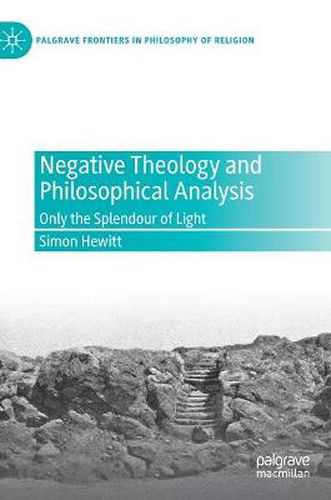Readings Newsletter
Become a Readings Member to make your shopping experience even easier.
Sign in or sign up for free!
You’re not far away from qualifying for FREE standard shipping within Australia
You’ve qualified for FREE standard shipping within Australia
The cart is loading…






This title is printed to order. This book may have been self-published. If so, we cannot guarantee the quality of the content. In the main most books will have gone through the editing process however some may not. We therefore suggest that you be aware of this before ordering this book. If in doubt check either the author or publisher’s details as we are unable to accept any returns unless they are faulty. Please contact us if you have any questions.
This book is the first treatment at length of negative, or apophatic, theology within the analytic tradition. Apophatic theology holds that there is a significant sense in which we cannot say what God is. Important negative theological elements are present in a host of Christian thinkers, from Gregory of Nyssa to Aquinas, and yet apophaticism is neglected in philosophical theology as practiced within the analytic tradition. By contrast, Hewitt shows how apophatic theology is integral to how Christians have thought about God, and how it can be defended against standard attacks in the philosophical literature.
Hewitt diagnoses the unease with apophaticism amongst contempory philosophical theologicans as rooted in a certain picture of how language functions, here called referentialism. Arguing that this picture is not compulsory, an account of language which sits more comfortably with negative theology (originating from work of later Wittgenstein) is invoked, and applied to key themes in philosophical theology including divine personhood, the Trinity, the Incarnation and the afterlife.
$9.00 standard shipping within Australia
FREE standard shipping within Australia for orders over $100.00
Express & International shipping calculated at checkout
This title is printed to order. This book may have been self-published. If so, we cannot guarantee the quality of the content. In the main most books will have gone through the editing process however some may not. We therefore suggest that you be aware of this before ordering this book. If in doubt check either the author or publisher’s details as we are unable to accept any returns unless they are faulty. Please contact us if you have any questions.
This book is the first treatment at length of negative, or apophatic, theology within the analytic tradition. Apophatic theology holds that there is a significant sense in which we cannot say what God is. Important negative theological elements are present in a host of Christian thinkers, from Gregory of Nyssa to Aquinas, and yet apophaticism is neglected in philosophical theology as practiced within the analytic tradition. By contrast, Hewitt shows how apophatic theology is integral to how Christians have thought about God, and how it can be defended against standard attacks in the philosophical literature.
Hewitt diagnoses the unease with apophaticism amongst contempory philosophical theologicans as rooted in a certain picture of how language functions, here called referentialism. Arguing that this picture is not compulsory, an account of language which sits more comfortably with negative theology (originating from work of later Wittgenstein) is invoked, and applied to key themes in philosophical theology including divine personhood, the Trinity, the Incarnation and the afterlife.